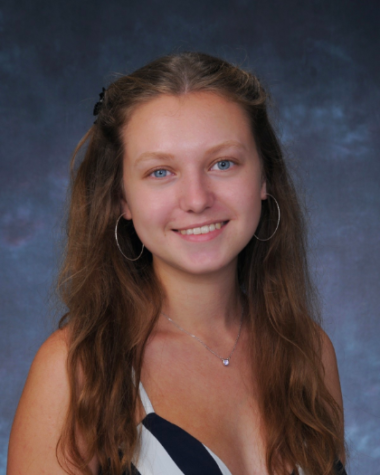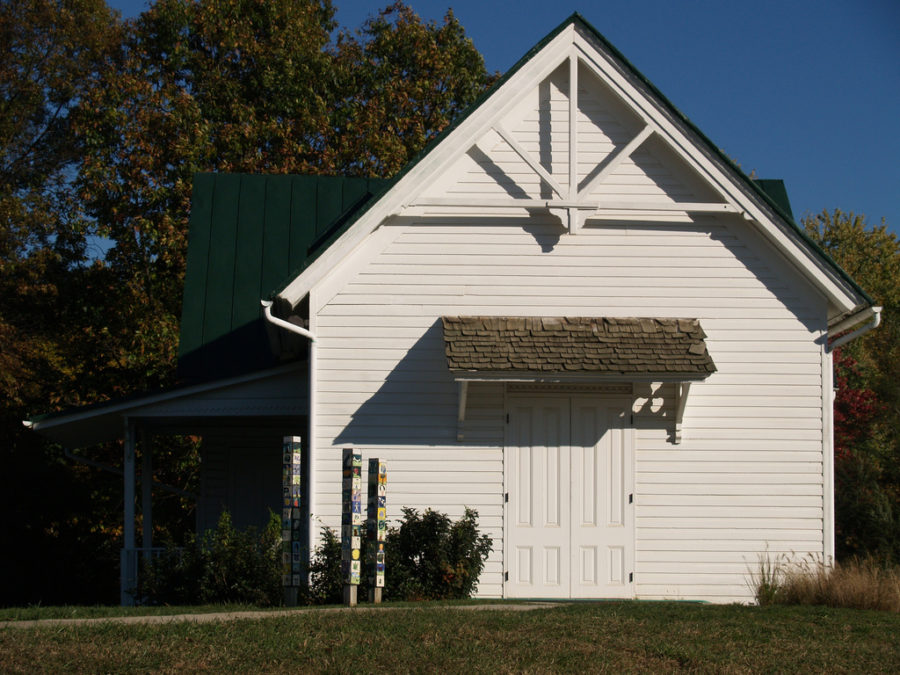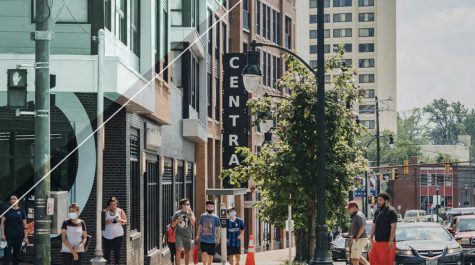To Be Raised At SSFS: What It’s Done For Me And For Others
For those who aren’t familiar, the term “lifer” is not unique to our school, yet it is used here to refer to students at SSFS who have spent all of school here. As one might expect, there are very few lifers left by senior year, because 14 years at the same private school–which will become 15 with the addition of PK3–is a big commitment. I’m one of four in the sophomore class.
If I’m being frank, SSFS has often felt like not just a school to me, but rather like some peculiar little village, where people live in little houses on campus and refer to each other as “Friends.” I know for a fact that when I describe SSFS to my friends from other schools, that’s exactly what they picture. They’ve told me so. They think we’re Amish.
And of course, this is a regular school with normal-sized people and modern technology and social drama and all of that, but it is different, somehow. Thus, the dreaded “bubble” argument arises, and we’re stuck sitting here disputing whether SSFS prepares its students for the world outside of this community. Everyone is sick of that argument, but it’s been a prominent topic of conversation with many people I’ve met through my years at SSFS, and I’ve been wondering about it myself.
So, who better to ask than the lifers who graduated SSFS and moved out into that “real world?”
I had the privilege of interviewing Alex Polón, a recent SSFS graduate and former lifer, and Meghan Cassidy, a Residential Life Counselor at SSFS today and a lifer herself who returned to the community years later as an adult.
“I am very happy in my college community and have found the transition to be smooth,” said Alex, “[but] the emphasis on the SPICES at SSFS and specifically on community, equality, and stewardship distinguishes it from my current collegiate community…I must admit that I miss calling teachers by their first names, which had helped me establish closer, respectful relationships with my teachers growing up.”
“I have always loved that at SSFS, ideally, we are learning from one another all the time, no matter what position or title we hold,” said Meghan. “I think we lose teachable moments and opportunities if we assume that the teacher will always know the correct answer to the question, or that the counselor will always read a situation with wisdom. Our community members are encouraged to question. This value is not always found in other places.”
I asked both of them about whether the SSFS community changed over the years, so that the transition from one school all your life to an open world was less jarring than it sounded. Alex shared, “The school did change in some ways–including but not limited to its increase in the number of students–but managed to retain its core values, which truly distinguishes SSFS from all schools.”
Meghan said, “I do think that the faculty and community members prepared me for the real world by giving me progressively more autonomy and developmentally appropriate interaction. As I got older, the community did a great job of allowing me to become more and more of the young adult I was becoming.”
When asked about their greatest takeaway from the SSFS community, Alex said, “Above all else, the phrase ‘Let Your Lives Speak’ has resonated with me. Those four words are very powerful and can be applied to everything you do…Additionally, I try to follow the SPICES, especially the values of integrity and community which go hand-in-hand with letting your life speak.”
Meghan said, “At SSFS, I learned the immense value of responsibility, particularly as it pertains to community. I grew up within the SSFS community, and always felt like there were so many people that were watching out for me…Because I cared deeply for the SSFS community, I also learned that taking care of myself was not enough if I wanted to lead a good life. Being responsible [for] a group of people is linked to longevity and fulfillment, whereas isolation can be detrimental.”
It seems easy to assume that raising a child on one campus their entire life would teach them to be close-minded or naïve, to be timid or to expect everything to be handed to them on a silver platter. And, in all honesty, that’s exactly what I’ve been afraid of realizing about myself once I leave this place. But to make that assumption is to assume that the child has not been taught important values about how to learn and how to live. The reason why these people have left SSFS and continued to thrive is because SSFS was the right place for them to develop into people ready to handle the challenges ahead of them.
Of course, it is a tremendous privilege to be able to attend a school like this, and I think many of the students at SSFS are well aware of that. It is a privilege to have been in the plays that I have acted in and sports teams that I have won and lost with, to have teachers who have wiped away my tears after I have said the wrong thing to the wrong person or tried as hard as I could and still failed, and to have such wonderful friends that I have grown up with and friends that I will continue to meet. It has been, and will continue to be, a pleasure to go to a school that I love. I love this little Quaker village that has brought me from a little girl to a teenager and will bring me into adulthood, because this school as been the right fit for me. Each person has an environment that they will benefit from the most, and not everyone is given the opportunity to find it.
A “bubble” is not determined by whether it is one school or many schools or no schools at all. The only “bubble” is a place where a child cannot mature into the person they will be happiest as. I stand by the firm belief that everyone has the right to be taught to have respect for themselves and for others, to push themselves to their intellectual limits while understanding that they are human, and to be kind and seek beauty in everything they see. And that is what the ideal school should do for a child, whatever that school may be.

Hi! My name is Irene Denniston and I'm an senior. This is my 14th year at SSFS, and my third year doing Wildezine. I've been doing creative writing, short...











